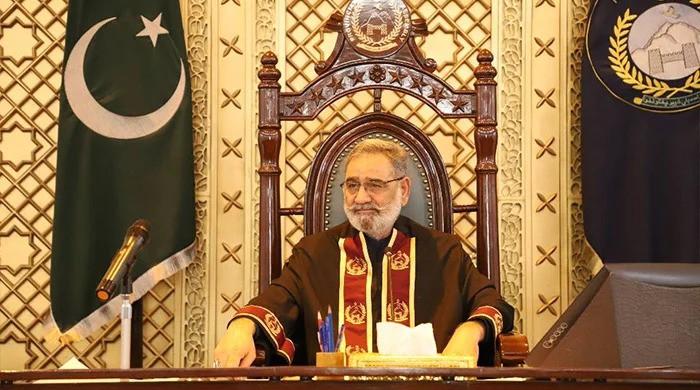Zardari has formed committee to probe offshore companies: Malik
PPP senator says the former president has asked him to present a report regarding the offshore companies issue in one week
May 17, 2016

LONDON: Former interior minister and senior Pakistan People’s Party (PPP) leader, Senator Rehman Malik on Tuesday said that his party’s co-chairman Asif Ali Zardari has formed a committee under him to probe the issue of offshore companies in the wake of Panama Papers revelations.
Speaking to media representatives here, Malik said he was asked by the former president to present him a report regarding the offshore companies issue in one week’s time.
“We want peaceful and constitutional resolution of Panama Papers issue…We want to resolve the matter and not to enmesh it any further,” he said.
The PPP senator urged Prime Minister Nawaz Sharif to resolve the issue with the opposition’s support. He, however, added that the party was still standing its ground over resignation of the prime minister on the issue.
Commenting over Monday’s National Assembly session over the issue, Malik said Opposition Leader Khursheed Shah should have spoken a little bit more.
“Shut down the Parliament if cannot be used for resolution of issues.”
Shah, on the other hand, has blamed Pakistan Tehreek-e-Insaf (PTI) for his short address and a walk out of the specially convened National Assembly session yesterday.
“Before my address, Shireen Mazari told me rather harshly to keep my speech short as they wanted to leave the House immediately,” Shah told Geo News.
“MQM (Muttahida Qaumi Movement) was with us in our decision to walk out,” he said.
Prime Minister Nawaz Sharif asked parliament on Monday to form a commission to investigate allegations stemming from the Panama Papers leak but opposition lawmakers walked out, saying he had evaded questions about his family’s affairs.
Prime Minister Nawaz has been under pressure since documents released as part of the Panama Papers data leak showed his children owned several off-shore companies and used them to buy properties in London. He denies wrongdoing, as do his children.
The leak of documents from a Panamanian law firm has captured global attention, uncovering among other things the use of off-shore businesses by wealthy individuals and corporations worldwide.
While such off-shore companies are often not illegal per se, their use spurs suspicions of illegal activity, such as money-laundering, corruption, and tax evasion.











